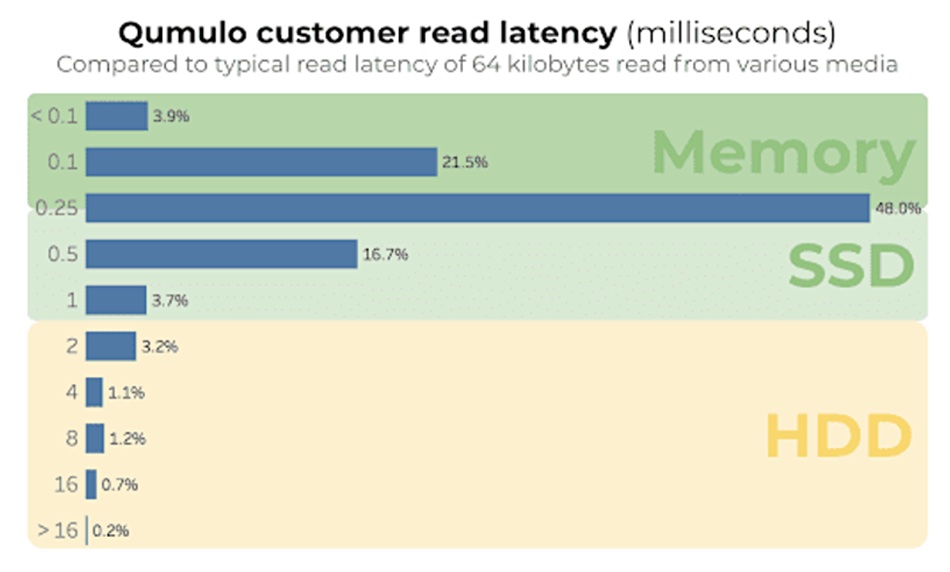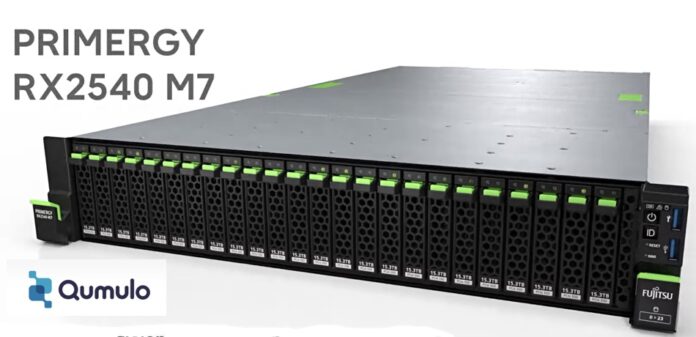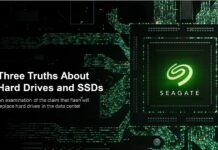Qumulo scale-out filesystem software is available on new Primergy M7 hybrid servers from Fujitsu.
These M7 servers were launched in January and use Xeon gen 4 CPUs for mainstream enterprise server use and affordable AI operations. They come in RX rack format, TX tower format, CX small cloud node, and GX GPU-fitted versions. Fujitsu commenced reselling Qumulo’s parallel access filesystem software in 2020. That software is cloud-native and spans the on-premises and public cloud environments.
Christian Leutner, Head of European Platform Business, Fujitsu, said: “With the expansion of our relationship, our customers in a wide range of industries will benefit from low-threshold access to Qumulo data processing as well as the ability to rapidly sift through billions of files to find the nuggets of true value. The integration on the Primergy RX2540 M7 also provides our channel partners with the opportunity to benefit from our relationship with Qumulo and distribute the solution.”
The RX2540M7 is powerful compute and storage box. It’s a 2RU, dual-socket server with up to 60 Xeon cores per CPU, up to 8TB of DDR5 memory, PCIe gen 5 connectivity, up to 6x Nvidia GPUs, and up to 12x SAS/SATA 3.5-inch or 24x 2.5-inch SAS/SATA/NVMe storage drives, and optionally six more at the rear of the chassis.
Fabrice Gourlay, Qumulo’s EMEA VP of Sales EMEA, stated: “Primergy RX2540 M7 is the ideal server for business-critical workloads such as AI, machine learning, graphics rendering, and in-memory databases.”
With Qumulo software, the Primergy server’s NVMe-based hybrid nodes are claimed to deliver the performance of flash storage at the price of disk. Back in May 2020, Fujitsu said Qumulo’s software was fast, with 90 percent of read requests handled in under 1ms from the in-built cache.
Ryan Farris, Qumulo’s VP of Products, said in a May 2023 performance blog: “Qumulo has optimized performance and cost trade-offs in its core hybrid architecture, where cold data resides on low-cost disk storage but [is] served at the speed of SSD and memory. As a result, Qumulo’s AI-based prefetch algorithm (with 10+ years of training) monitors read requests, anticipates which data blocks are likely to be requested next, and prefetches them into system memory for even faster access than the SSD layer can deliver. The net effect for Qumulo’s customers (and their workloads) is an amazing and highly predictable experience, with the vast majority of read operations being served with <1ms latency.”
We were told: “This is true for all of our hybrid platforms, including the most recent hybrid storage SKUs from Fujitsu which run Qumulo software.”

Qumulo monitored read latency on more than 1,000 of its installed systems and found:
- More than 90 percent of all reads are served at <= 1ms latency. Within that 90 percent:
a. 50 percent of all read operations are served from system memory – faster than SSDs
b. 25 percent of all reads come in at <0.1ms
c. 48 percent of reads are at 0.25ms, whether from system memory or SSD
d. 20 percent are between 0.5 and 1ms
Only 10 percent of all reads were from disk, and more than half of those still come in at 2ms or less of latency.
This is not as good as Infinidat’s arrays with its patented Neural Cache technology, where 95 percent or more of reads come from system memory, but it is the next best caching algorithm we have seen.
Other Fujitsu deals
Fujitsu has had an OEM deal with NetApp ONTAP storage since 2020, with its Eternus AF all-flash and DX hybrid arrays getting NetApp-based entry and mid-rage models. In June 2022, Fujitsu Asia Pte Ltd. (Singapore) was NetApp’s GSI Partner of the Year.
Fujitsu has a partnership with data intelligence supplier Alation, combining its own data analytics capabilities with Alation software to make it easy for customers to find, understand, and trust data.
Last week Fujitsu announced it will move out of its Tokyo headquarters and consolidate its other offices in the capital, concentrating its activity in Tokyo’s suburbs, partly due to the rise of remote working. It is trialing generative AI software with Japanese banks. That might be a Qumulo opportunity.
Get an RX2540 M7 datasheet here. Qumulo is a Gold Sponsor of Fujitsu’s TechCommunity Workshop Event being held in Dubrovnik over October 10-12. The Imelda Hospital in Belgium is a Fujitsu/Qumulo customer and a case study can be read and downloaded here.








